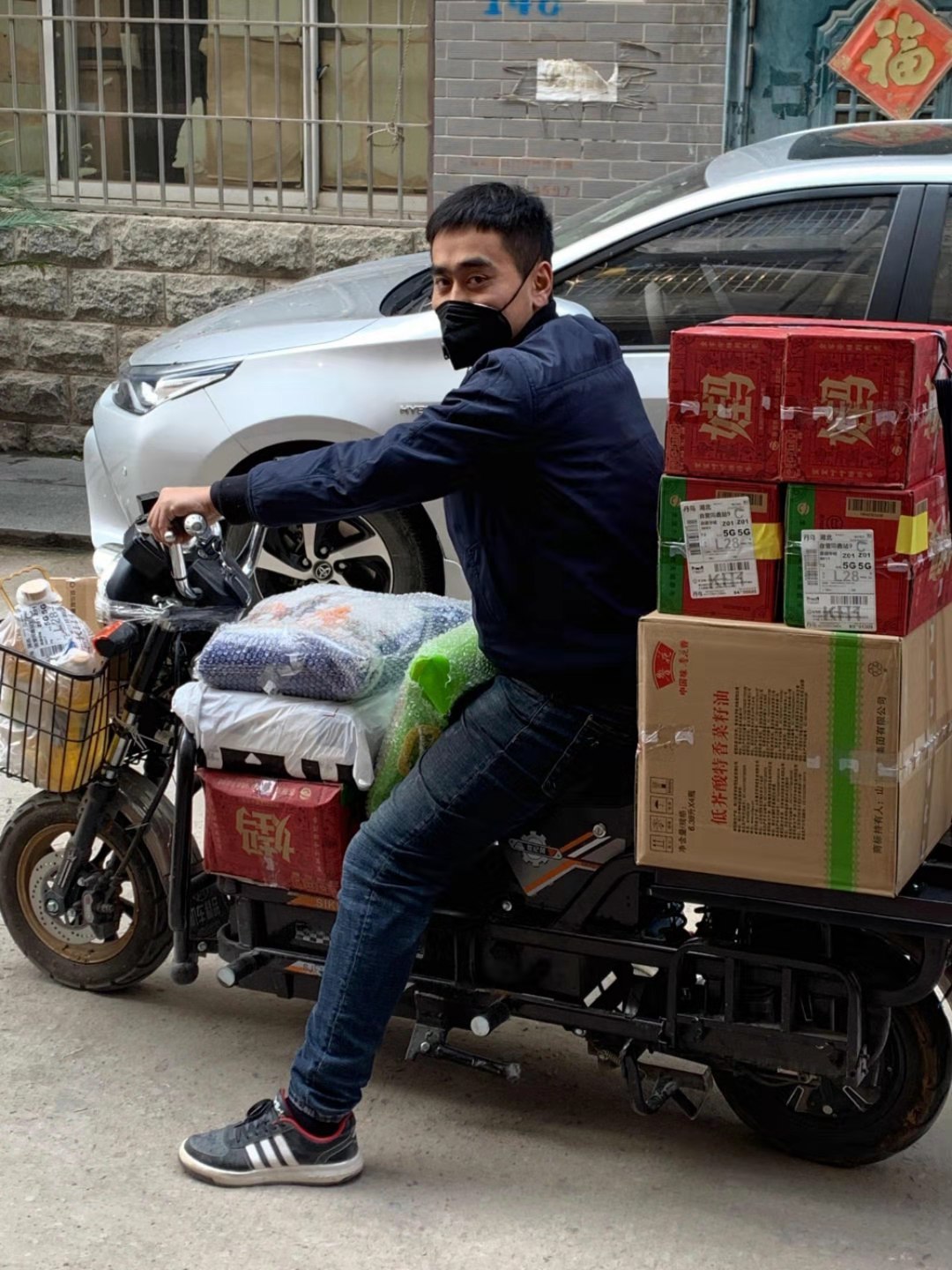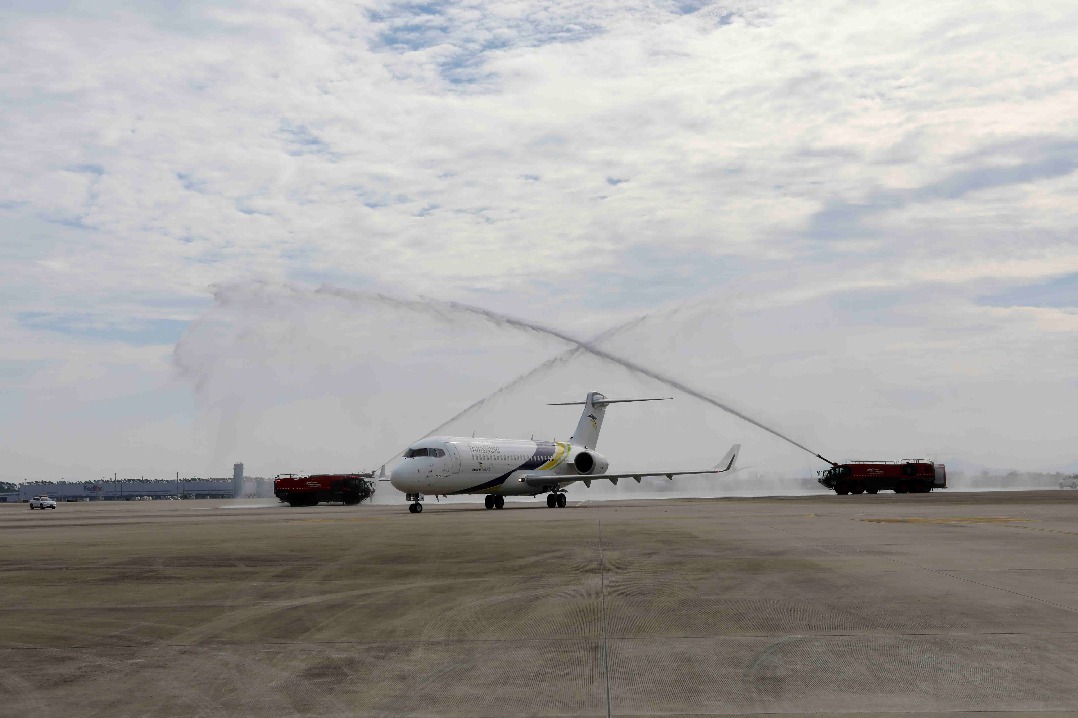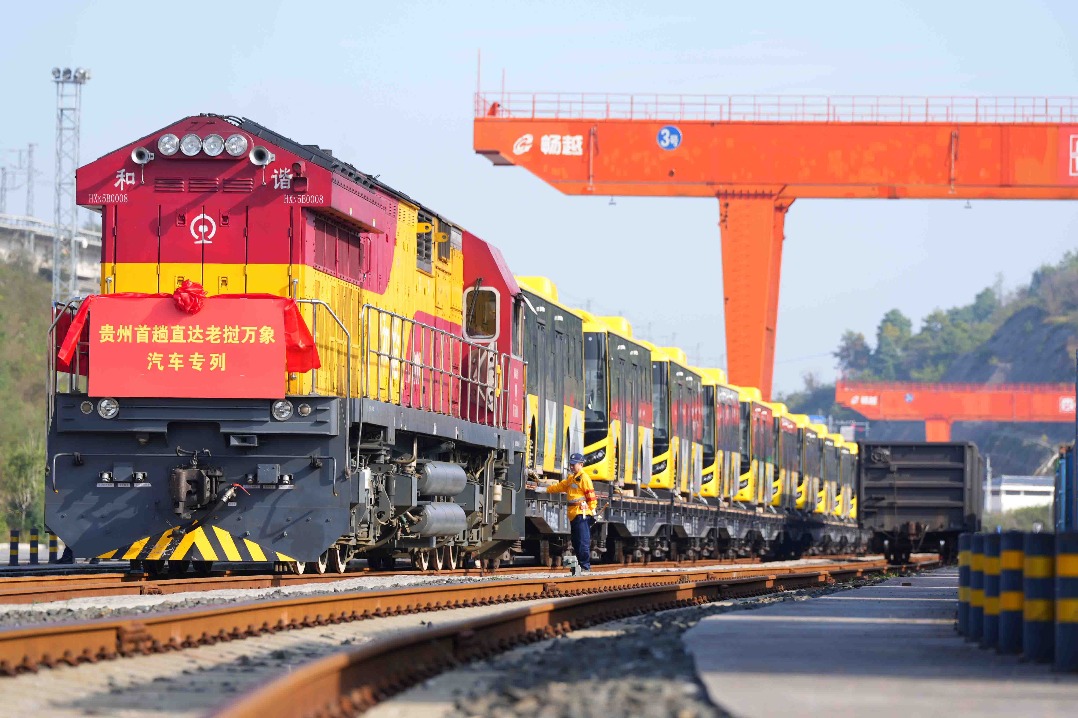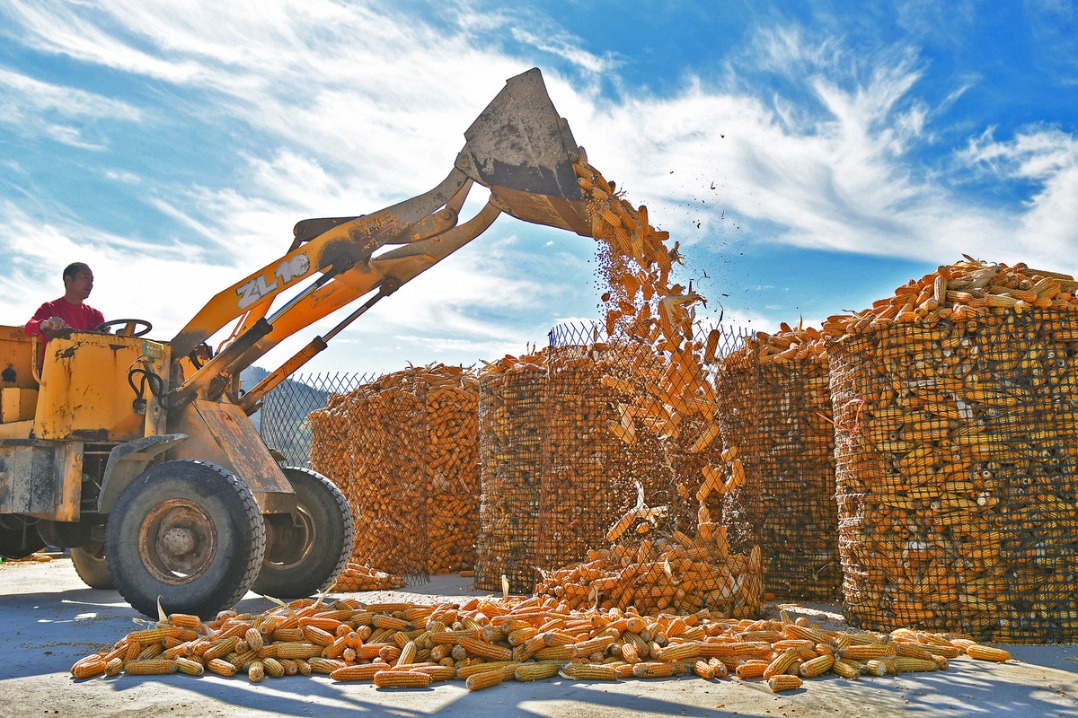Delivery drivers a lifeline for isolated residents

People are becoming increasingly reliant on goods provided by online retailers. Zhang Yangfei reports.
Editor's note: Wuhan, Hubei province, has been in lockdown since Jan 23, meaning many residents have not left their homes for more than three weeks. Below, China Daily profiles three people who are helping to maintain crucial supplies of food and sanitation products.

Wu Qiang, a 32-year-old native of Heilongjiang province, has lived in Wuhan for 10 years. He is director of a delivery station for an online retailer.
I don't quite remember exactly how long I've been working without a day off. I think it is probably since early December.
Every day, I arrive at the delivery station at 7 am, check all the deliverymen's temperatures, assign their work and set out on deliveries. We don't really have a fixed finishing time, so we work until we feel exhausted. As director of the delivery station, I'm always the last to leave, usually sometime after 8:30 pm.
Each of us is now responsible for more than two people's workloads, and the number of orders is growing every day. Shortly before the Chinese New Year holiday, which began on Jan 23, quite a few deliverymen returned home for the festival, because no one expected the epidemic to become so serious. That means just seven of us have to cover an area with a radius of about 13 kilometers.
The Lunar New Year holiday is normally the off-peak period for online retailers. After the outbreak of the novel coronavirus, though, and the city's lockdown, which started on Jan 23, customers have become wary of going out. Instead, they are stocking up with as many necessities as possible by shopping online.
In the past, each household would probably buy two bags of rice a month, but now they buy six. Cooking oil, rice, baby formula, diapers, face masks and instant noodles are some of the most-purchased items on our platform, because they have already sold out in brick-and-mortar supermarkets.
Due to the severity of the epidemic, the entrances of many communities are locked. Now, we put the goods in front of the entrance and call our clients to come and pick them up, instead of delivering to the customer's door.
To avoid close people-to-people contact, when the clients approach, we put their package out in front, step back 5 meters, sign that they have received the goods and check that they have taken their items with them.
I had planned to take annual leave on Jan 29. I wanted to return to my hometown to be reunited with my wife, who is six months pregnant, and my 6-year-old daughter, but the lockdown means I can't leave the city and my family can't come here, either. In addition, seeing the sudden rise in work intensity, I gave up the idea of taking a break.
My wife calls every day to see if I'm well. At first, she tried to persuade me to stop working, but I found I couldn't. If I left, my station would fall apart because the deliverymen are afraid, too. I need to stay and go out with them. Besides, we have taken enough preventive measures and our risk of infection is much lower than that of doctors, nurses and police officers who stay on the front line fighting the epidemic.
On Lunar New Year's Eve, I worked until 6 pm. I didn't plan to celebrate the festival at all when I decided to stay on duty. This year, the holiday was just like every other day. I am happy enough to cook some rice and vegetables when I return home at night, because all the restaurants have been shut down and I have been eating instant noodles for breakfast and lunch since Jan 22.
My biggest wish is that the lockdown will be lifted and everything will return to normal as quickly as possible so I can see my wife and daughter and rest at home for a few days.





































